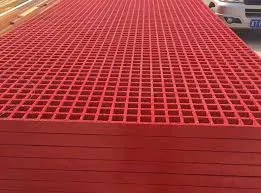
-
 Afrikaans
Afrikaans -
 Albanian
Albanian -
 Amharic
Amharic -
 Arabic
Arabic -
 Armenian
Armenian -
 Azerbaijani
Azerbaijani -
 Basque
Basque -
 Belarusian
Belarusian -
 Bengali
Bengali -
 Bosnian
Bosnian -
 Bulgarian
Bulgarian -
 Catalan
Catalan -
 Cebuano
Cebuano -
 China
China -
 China (Taiwan)
China (Taiwan) -
 Corsican
Corsican -
 Croatian
Croatian -
 Czech
Czech -
 Danish
Danish -
 Dutch
Dutch -
 English
English -
 Esperanto
Esperanto -
 Estonian
Estonian -
 Finnish
Finnish -
 French
French -
 Frisian
Frisian -
 Galician
Galician -
 Georgian
Georgian -
 German
German -
 Greek
Greek -
 Gujarati
Gujarati -
 Haitian Creole
Haitian Creole -
 hausa
hausa -
 hawaiian
hawaiian -
 Hebrew
Hebrew -
 Hindi
Hindi -
 Miao
Miao -
 Hungarian
Hungarian -
 Icelandic
Icelandic -
 igbo
igbo -
 Indonesian
Indonesian -
 irish
irish -
 Italian
Italian -
 Japanese
Japanese -
 Javanese
Javanese -
 Kannada
Kannada -
 kazakh
kazakh -
 Khmer
Khmer -
 Rwandese
Rwandese -
 Korean
Korean -
 Kurdish
Kurdish -
 Kyrgyz
Kyrgyz -
 Lao
Lao -
 Latin
Latin -
 Latvian
Latvian -
 Lithuanian
Lithuanian -
 Luxembourgish
Luxembourgish -
 Macedonian
Macedonian -
 Malgashi
Malgashi -
 Malay
Malay -
 Malayalam
Malayalam -
 Maltese
Maltese -
 Maori
Maori -
 Marathi
Marathi -
 Mongolian
Mongolian -
 Myanmar
Myanmar -
 Nepali
Nepali -
 Norwegian
Norwegian -
 Norwegian
Norwegian -
 Occitan
Occitan -
 Pashto
Pashto -
 Persian
Persian -
 Polish
Polish -
 Portuguese
Portuguese -
 Punjabi
Punjabi -
 Romanian
Romanian -
 Russian
Russian -
 Samoan
Samoan -
 Scottish Gaelic
Scottish Gaelic -
 Serbian
Serbian -
 Sesotho
Sesotho -
 Shona
Shona -
 Sindhi
Sindhi -
 Sinhala
Sinhala -
 Slovak
Slovak -
 Slovenian
Slovenian -
 Somali
Somali -
 Spanish
Spanish -
 Sundanese
Sundanese -
 Swahili
Swahili -
 Swedish
Swedish -
 Tagalog
Tagalog -
 Tajik
Tajik -
 Tamil
Tamil -
 Tatar
Tatar -
 Telugu
Telugu -
 Thai
Thai -
 Turkish
Turkish -
 Turkmen
Turkmen -
 Ukrainian
Ukrainian -
 Urdu
Urdu -
 Uighur
Uighur -
 Uzbek
Uzbek -
 Vietnamese
Vietnamese -
 Welsh
Welsh -
 Bantu
Bantu -
 Yiddish
Yiddish -
 Yoruba
Yoruba -
 Zulu
Zulu
Durable Fiberglass Storage Tanks for Efficient Industrial Liquid Containment Solutions
Understanding Fiberglass Storage Tanks Benefits and Applications
Fiberglass storage tanks have become increasingly popular in various industries due to their unique properties, durability, and cost-effectiveness. These tanks are made from a composite material known as fiberglass-reinforced plastic (FRP), which combines glass fibers and resin to create a robust and lightweight structure. This article delves into the features, advantages, and applications of fiberglass storage tanks.
Composition and Structure
Fiberglass is composed of fine glass fibers woven together and infused with a polymer resin, which binds the fibers to form a solid structure. This manufacturing process creates a product that is not only lightweight but also resistant to corrosion and chemical infiltration. The versatility in design allows fiberglass tanks to be produced in various shapes and sizes, catering to diverse storage requirements.
Advantages of Fiberglass Storage Tanks
1. Corrosion Resistance One of the most significant advantages of fiberglass tanks is their resistance to corrosion. Unlike metal tanks that can rust or degrade when exposed to certain chemicals or environmental conditions, fiberglass maintains its integrity, making it suitable for storing various substances, including chemicals, wastewater, and fuels.
2. Lightweight Fiberglass tanks are considerably lighter than their steel or concrete counterparts. This lightweight characteristic reduces the labor and cost associated with transportation and installation. Additionally, their reduced weight can help in areas where structural integrity is a concern.
3. Cost-Effective Although the initial purchase price of fiberglass tanks may be higher than other materials, their long lifespan and minimal maintenance needs often translate into overall cost savings. The lack of rust and degradation means that these tanks require less frequent replacement and repairs.
4. Customizable Design Fiberglass tanks can be easily molded into various shapes and sizes. Manufacturers can create custom solutions tailored to specific storage needs, from small residential applications to large industrial systems.
5. Environmentally Friendly As industries move towards sustainable practices, fiberglass tanks emerge as a viable option. Their longevity and reduced chemical leaching contribute to lower environmental impact compared to traditional storage systems.
fiberglass storage tanks

Common Applications
Fiberglass storage tanks are utilized across numerous sectors due to their versatile properties.
- Water Treatment These tanks are often used in both municipal and industrial water treatment facilities. Their resistance to corrosion and ability to store various chemicals make them ideal for processes involving water purification and waste management.
- Chemical Storage Industries that handle aggressive chemicals, such as pharmaceuticals, petrochemicals, and fertilizers, frequently rely on fiberglass tanks. The ability to resist chemical reactions ensures safe storage without contamination or leakage.
- Agriculture Fiberglass tanks are common in agriculture for storing water, fertilizers, and pesticides. Their durability against environmental factors ensures a reliable supply to agricultural operations while minimizing risk.
- Oil and Gas In the oil and gas sector, fiberglass tanks store crude oil and other petrochemicals. Their resistance to corrosion significantly reduces the risk of environmental spills.
- Food and Beverage Given their clean and non-reactive surfaces, fiberglass tanks are increasingly being used in food processing and beverage production facilities. This ensures that no harmful substances leach into the products, maintaining food safety standards.
Conclusion
Fiberglass storage tanks present a compelling alternative to traditional storage solutions for various industries. Their unique combination of lightweight construction, corrosion resistance, and customizability makes them an attractive choice for businesses looking to invest in long-lasting and efficient storage options. As industries continue to evolve, the demand for fiberglass tanks is expected to grow, aligning with trends toward sustainability and environmental responsibility. Choosing fiberglass storage tanks is not merely a matter of preference but a strategic decision that can yield significant long-term benefits.









